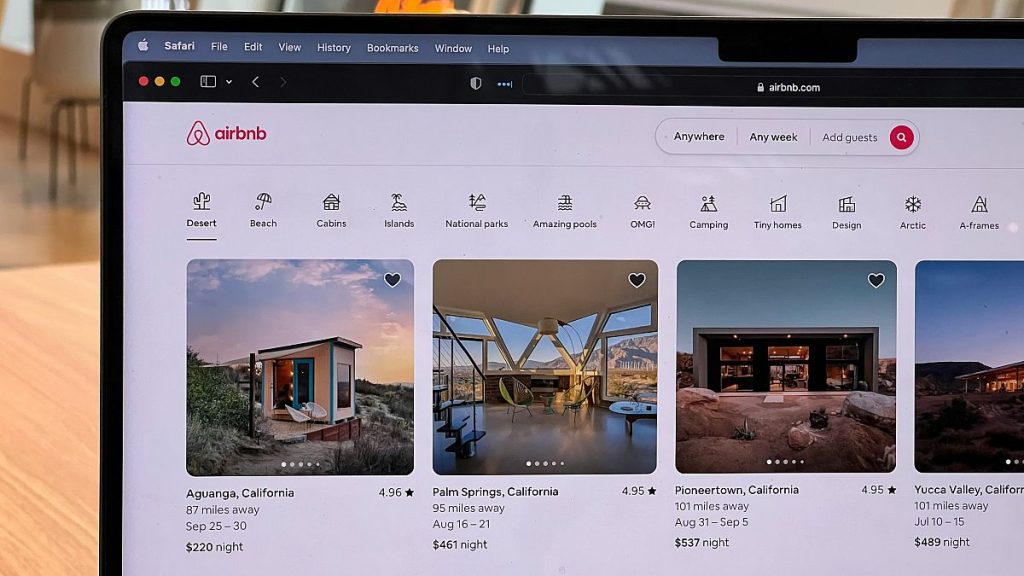Airbnb, a leading platform in holiday rentals, is currently reevaluating its approach in response to mounting criticism over its impact on local communities and tourism industries. Over the past years, various cities, such as Florence and Barcelona, have implemented restrictions on short-term rentals as a means of alleviating housing shortages exacerbated by the influx of tourists utilizing such platforms. Additionally, some of Airbnb’s promotional efforts have faced backlash; a recent controversial campaign offered guests the opportunity to dress up as gladiators in the Colosseum, earning significant disapproval from both locals and officials who viewed it as trivializing the historic site. In light of these challenges, Airbnb is shifting its strategy by fine-tuning its property listings and enhancing its experiential offerings.
Despite the ongoing debates surrounding overtourism and its detriment to local communities, Airbnb has seen a noteworthy increase in activity, particularly in the summer quarter of 2024, which saw an 8% rise in bookings, reaching 122.8 million. The platform reports a significant uptick in mobile transactions, indicating a growing reliance on the app by holidaymakers, with 50 enhancements made since October to improve user experience and accessibility, especially for first-time users. This increase in engagement has also been reflected in a larger number of younger travelers turning to Airbnb for their accommodation needs, presenting a positive indication of the brand’s resilience in the market.
Notably, Airbnb has introduced more flexible local payment options, allowing users in countries such as Vietnam, Denmark, and Poland to pay in their native currencies. The company anticipates expanding this initiative to offer nearly 40 local payment methods around the globe by spring 2025. By focusing on making its services more relevant to local cultures and economies, Airbnb aims to solidify its presence and viability in various international markets. This localized approach is part of Airbnb’s broader strategy to innovate and remain competitive despite increasing scrutiny from local government entities and concerned residents.
To enhance the quality of its offerings, Airbnb has taken decisive steps to refine its property catalog, removing over 300,000 listings that failed to meet guest expectations and were classified as “low quality.” Such actions are in response to widespread stories in the media of subpar accommodations and the perceived unreasonable demands from some hosts regarding cleanliness and upkeep. Airbnb is also actively addressing the issue of host cancellations, recognizing it as a significant inconvenience for guests, though it acknowledges that such cancellations are infrequent. This selective approach aims to foster trust and satisfaction among users while minimizing negative experiences.
Beyond its core rental business, Airbnb is contemplating an expansion into other areas, signified by their intention to go “beyond accommodation” next year. While specific details remain unannounced, speculation suggests that the company may reinvigorate its Airbnb Experiences platform, launched in 2016 but previously stalled due to lack of traction. These experiences are activities aimed at tourists, such as food tours and adventurous excursions, and there is potential for a shift in focus toward marketing these experiences to local residents as well. Additionally, integrating ticket sales for renowned attractions and offering services tied to property rentals, such as in-home massages or dining experiences prepared by private chefs, are possible avenues for diversification.
In summary, Airbnb is facing the dual challenge of growing its business in a competitive market while navigating the criticisms it has encountered from both residents and travelers worldwide. By strategically refining its offerings and enhancing user experience through innovative payment solutions and quality controls, Airbnb aims to rebuild its reputation and encourage sustainable tourism. Its potential move into experiential offerings may open new revenue streams and foster a closer connection between hosts, guests, and local communities. As Airbnb redefines its mission, the success of these initiatives will ultimately depend on carefully balancing the interests of stakeholders, reinforcing its commitment to providing a memorable and responsible travel experience.














